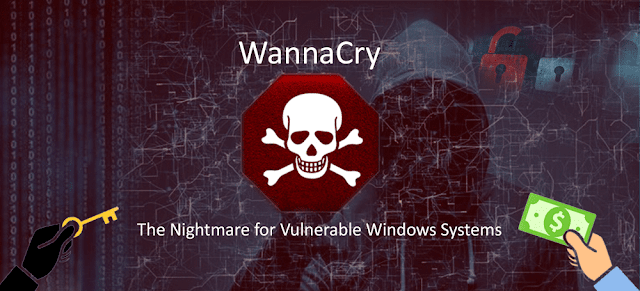Decrypting the Divide: Unraveling Hacking and the Enigma of the Dark Web
Cracking the Code: Deciphering Hacking vs. Delving into the Shadows: Navigating the Dark Web
Hacking involves gaining unauthorized access to computer systems or networks, and exploiting vulnerabilities for various purposes. It encompasses both ethical endeavors to improve security and malicious activities aimed at causing harm or stealing data. Conversely, the Dark Web is a hidden part of the internet not indexed by search engines. It requires specific software to access and is often associated with illicit activities. While hacking can occur anywhere on the internet, including the Dark Web, the Dark Web serves as a platform for anonymous communication and illegal transactions, such as drug sales and hacking tools. In summary, hacking refers to the act of breaching security, while the Dark Web is a hidden online space known for its anonymity and illicit activities.
Understanding Hacking:
Hacking, an intricate and often misunderstood concept, encompasses various activities revolving around gaining unauthorized access to computer systems or networks. At its core, hacking involves the exploration and exploitation of vulnerabilities in digital systems for different purposes. From ethical hacking aimed at improving security to malicious hacking focused on causing harm or stealing sensitive information, the spectrum of hacking activities is vast and multifaceted.
Exploring the Depths of Hacking:
Delving deeper into the realm of hacking reveals its intricate dynamics and diverse motivations. Ethical hackers, also known as white-hat hackers, utilize their skills to identify and address security weaknesses, safeguarding systems from potential threats. Conversely, malicious or black-hat hackers leverage their expertise for personal gain, espionage, or disruptive purposes. Understanding the nuances of hacking is essential in navigating the complexities of cybersecurity and safeguarding digital assets against evolving threats.
Impacts of Hacking:
Hacking can have far-reaching consequences, affecting individuals, businesses, and even entire industries. The impacts of hacking can be profound and varied, ranging from financial losses to damage to reputation and trust.
Financial Losses: Hacking incidents often result in significant financial losses for businesses and individuals. Data breaches, theft of financial information, and ransom demands can incur substantial monetary damages.
Reputation Damage: Organizations that fall victim to hacking often suffer damage to their reputation and trustworthiness. Public perception of a company's ability to protect sensitive data can be irreparably harmed, leading to long-term consequences.
Legal Ramifications: Hacking activities can also have legal ramifications for perpetrators. Hackers may face criminal charges, fines, and imprisonment depending on the severity and nature of the breach.
Understanding Dark Web:
The Dark Web provides a platform for users to communicate and transact anonymously, shielding their identities and activities from surveillance and censorship. This anonymity fosters freedom of expression and enables individuals to share information without fear of reprisal or judgment, promoting open dialogue and discourse on sensitive topics.
Hacktivist Groups:
Hacktivist groups, such as Anonymous, have utilized the Dark Web to organize and coordinate online campaigns to promote freedom of speech, challenge government oppression, and expose corruption.
While some hacktivist activities may be controversial or illegal, they have contributed to the visibility and utilization of the Dark Web as a platform for political activism and dissent.
Anonymity and Privacy:
The Dark Web provides a platform for users to communicate and transact anonymously, shielding their identities and activities from surveillance and censorship.
This anonymity fosters freedom of expression and enables individuals to share information without fear of reprisal or judgment, promoting open dialogue and discourse on sensitive topics.
Underground Economy and Illicit Activities:
Beneath the veil of anonymity, the Dark Web harbors a thriving underground economy, facilitating the sale of illicit goods and services such as drugs, weapons, counterfeit documents, and stolen data.
Despite efforts to regulate and monitor Dark Web activities, its decentralized nature and encryption protocols make it challenging for authorities to curb illegal transactions and enforce laws effectively.
The creation and evolution of the Dark Web have been shaped by a diverse array of actors, including privacy advocates, technologists, activists, and hacktivist groups, united by a common desire to preserve online privacy, free expression, and individual autonomy.
Conclusion:
In conclusion, the intertwined realms of hacking and the Dark Web unveil the complexities and challenges of the digital age. Hacking, with its spectrum of ethical and malicious endeavors, underscores the critical need for robust cybersecurity measures and ethical conduct in the digital sphere. Meanwhile, the Dark Web, shrouded in anonymity and controversy, serves as both a sanctuary for free expression and a haven for illicit activities. As technology continues to evolve, so too must our understanding and approach to cybersecurity and online privacy. By fostering transparency, accountability, and collaboration, we can navigate the digital landscape with resilience and integrity, ensuring that the principles of security, privacy, and freedom remain paramount in the digital frontier.






Comments